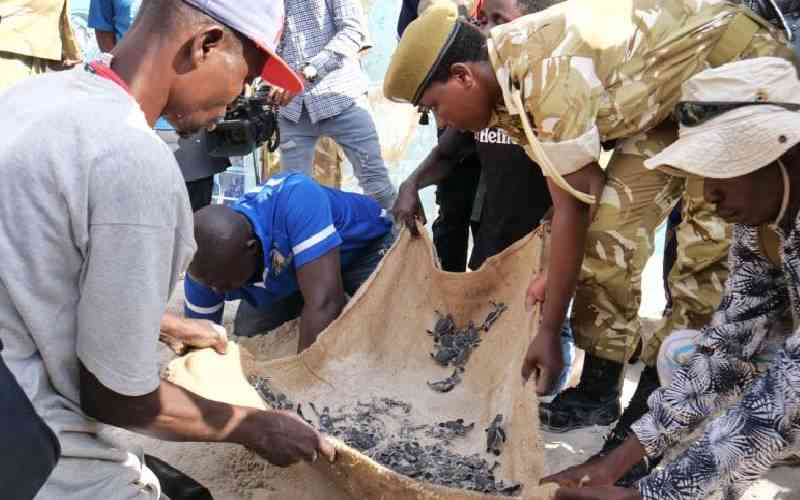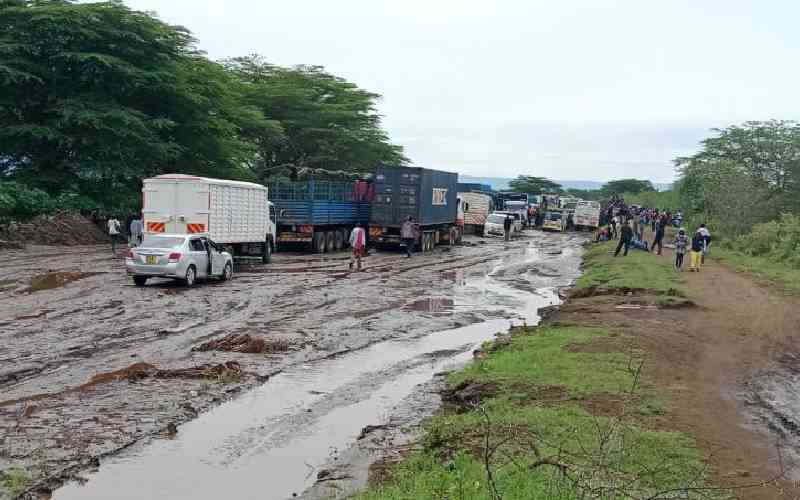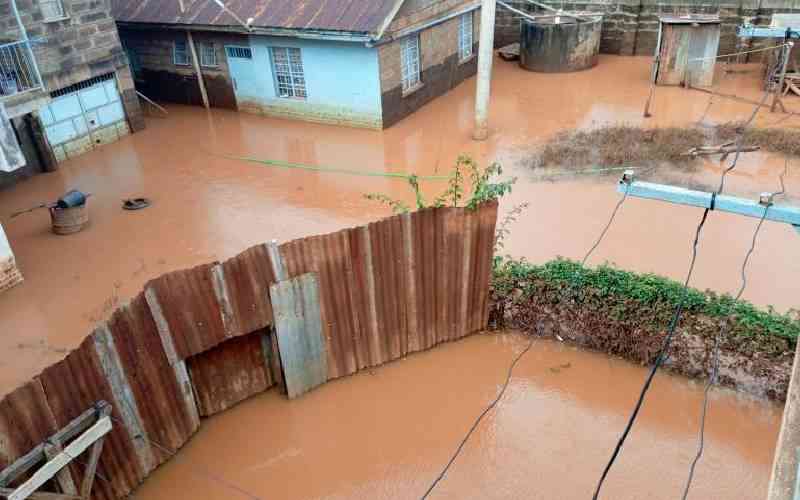
As stewards of the Western Indian Ocean, Kenya stands at the cusp of a very promising marine and coastal-based economy that forms the backbone of a prosperous blue economy and a frontier in the country’s development agenda. This is well evidenced by the fact that the blue economy contributes 2.5 per cent to Kenya’s GDP with a projected annual contribution of Ksh.178.8 billion.
However, there are significant threats to this promise and impediments holding Kenya back from fully tapping into the potential towards a sustainable ocean economy. In the modern context, the marine ecosystem is beset by human-induced environmental degradation and resource depletion, hampering growth of an otherwise flourishing sector.
Of particular concern is the plight facing sea turtles in Kenya’s coastal waters. Sea turtles play an integral role in maintaining healthy oceans - they help to balance marine food webs, facilitate nutrient cycling, and their nesting contributes to coastal dune formation and vegetation growth. However, decades of poaching, bycatch from fisheries, habitat loss from coastal development, and pollution have decimated turtle populations.
Data from the Kenya Wildlife Service (KWS) report shows there are at least 450 sea turtles nesting along Kenya’s coastline with five of the seven species occurring in our waters. Three of the turtles - Loggerhead, leatherback and olive ridley - are classified as vulnerable, the green as endangered whereas the hawksbill as critically endangered under the International Union for Conservation of Nature (IUCN) Red List.
As ancient mariners that have traversed our oceans for over 100 million years, allowing them to disappear on our watch would be tragic. Their role as keystone species means their decline has ripple effects across entire marine ecosystems. The precarious state of sea turtles signals just how urgently we need to address threats to Kenya’s marine ecosystems.
It is in this context that protecting sea turtles should be a key priority if Kenya is to achieve its full potential as a maritime nation. As a leading financial institution, SBM Bank recognises its role in promoting business practices that safeguard the natural assets fundamental to shared prosperity. We recently partnered with Diani Turtle Watch to protect and monitor nesting sites in Diani.
The coastal region is a biodiversity hotspot and priority area for the bank, and helping preserve fragile turtle nesting sites aligns with our commitment to environmental sustainability. As members of the UN Global Compact, this is part of our responsibility in keeping true to sustainable principles.
Yet responsibility does not lie with the private sector alone. Achieving long-term turtle population recoveries necessitates government policies like expanded Marine Protected Areas, habitat restoration, and enforcing turtle excluder devices on fishing vessels. It also requires public-private partnerships between officials, NGOs, local communities and businesses to maximize resources and knowledge-sharing.
A great example is the Local Ocean Conservation project which unites fishermen, conservation groups, and local schools to monitor nesting beaches, promote protection of sea turtles and educate youth on marine conservation. Such grassroots initiatives are promising, but need increased funding and policy support to scale up.
With Kenya set to host the European Union Blue Invest Africa conference in July, there is an opportunity to spotlight marine conservation as central to advancing the continent’s blue economy agenda. Protecting endangered species like sea turtles should feature prominently in discussions, with a keen focus on restoring the maritime ecosystem which they play a huge role in maintaining. The conference will serve to complement the Kenyan government’s commitment to prioritize the blue economy as a key driver of growth and prosperity.
Ultimately, saving sea turtles is imperative for Kenya to achieve the UN Sustainable Development Goal for healthy oceans, SDG 14. With shared responsibility and collective action, we can stem the loss of these ancient mariners and create a thriving blue economy that works in harmony with marine life.
Concerted efforts from key stakeholders is vital in the turtle conservation drive. This will entail research-driven turtle population recovery plans, expand community stewardship of nesting sites, and raising public awareness on keeping our ocean giants off endangered species lists. Kenya’s coastal communities depend on a vibrant marine ecosystem, and commitment from all sectors is required to ensure turtles remain an integral part of that heritage that will lead to a bright blue future where turtles can once again flourish.
-Ms Mulandi is Head of Marketing and Communication at SBM Bank Kenya
 The Standard Group Plc is a multi-media organization with investments in media platforms spanning newspaper print
operations, television, radio broadcasting, digital and online services. The Standard Group is recognized as a
leading multi-media house in Kenya with a key influence in matters of national and international interest.
The Standard Group Plc is a multi-media organization with investments in media platforms spanning newspaper print
operations, television, radio broadcasting, digital and online services. The Standard Group is recognized as a
leading multi-media house in Kenya with a key influence in matters of national and international interest.











